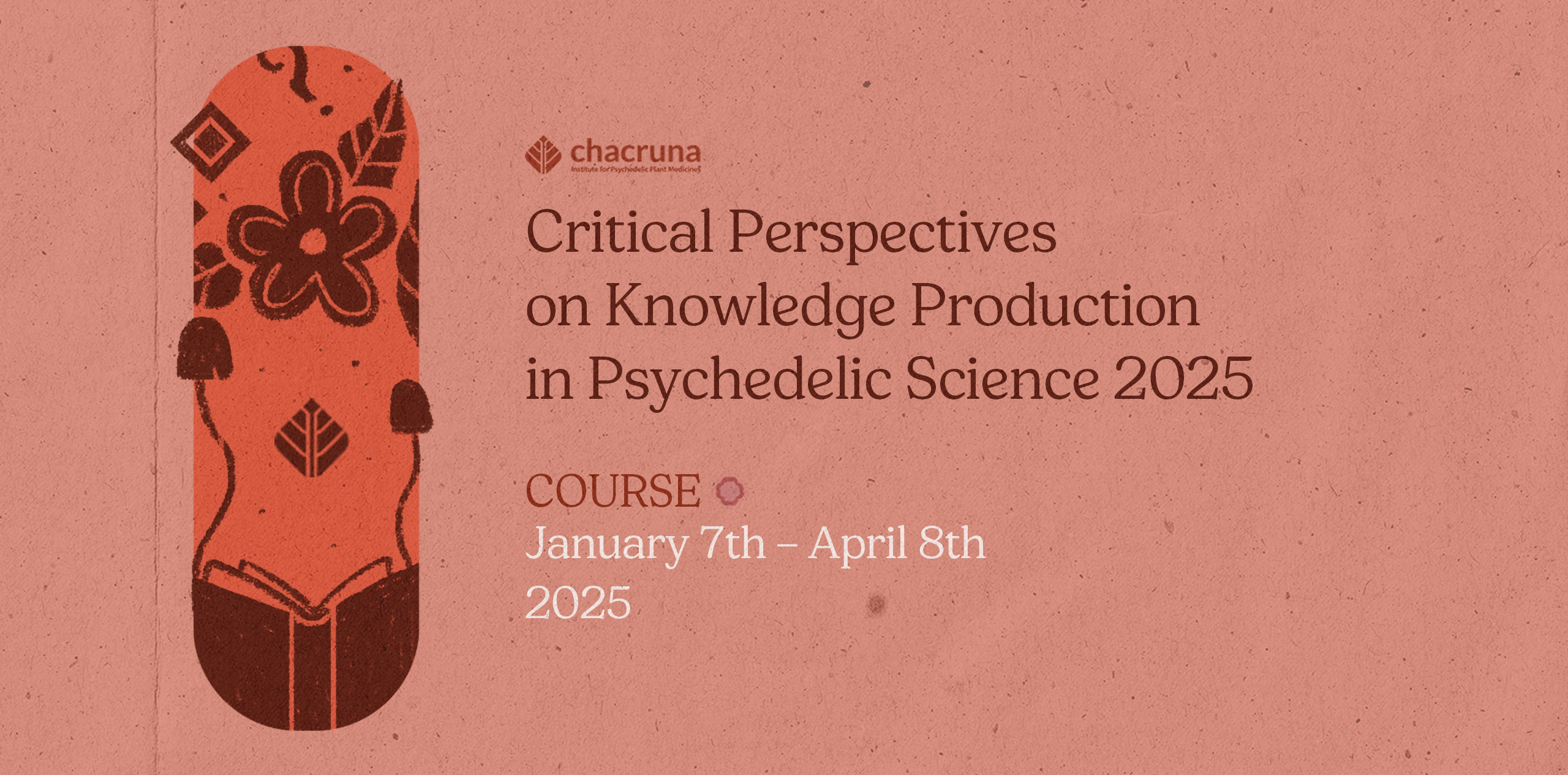- Psychedelics and Attachment: Fundamentals, Implications, and New Frontiers - May 16, 2025
- Development Outreach Internship (OPEN) - May 6, 2025
- Social Media and Content Production Internship (OPEN) - May 6, 2025
January 7th – April 8th 2025, 10:30am-12pm PST/1:30pm-3pm EST
REGISTRATION EXTENDED UNTIL JANUARY 14th
Price $950 USD
CE credits approval pending
CE Credits Offered: 24 total
Check our page at Thinkific!
In the midst of the current “renaissance” in psychedelic research, it is increasingly recognized that there are a wide range of methodological and ethical issues facing the field. Beyond purely methodological questions, there are also critical questions to be asked about how, where and why particular knowledge about psychedelics is produced. As psychedelics continue to enter mainstream society, it is important to consider what perspectives, questions, methods, and narratives are privileged and which are marginalized. For instance, how are certain variables selected in trials? How much value is assigned to particular forms of subjective experience, or is this valued at all? How does knowledge production differ between the Global North and Global South? How are Indigenous perspectives incorporated into psychedelic research? This course will examine a wide range of critical issues and perspectives in psychedelic science, equipping students with a broader and more integrated understanding of how research is conducted across a variety of settings, its limitations, and how these may be overcome in the future.
Student Learning Objectives
At the end of the program, participants will be better able to…
- Explain how historical, political, and economic factors inform psychedelic research design
- Discuss the role of the entourage effect in the therapeutic use of psychedelics
- List which measures are commonly used in psychedelic research
- Describe which biases affect the choice of measures in psychedelic research
- Compare the nuances of how clinical trials with psychedelics are designed and conducted in a variety of settings
- Describe a range of methodological and ethical questions inherent in psychedelic research
- Explain the complex history of psychedelics and religion
- Discuss how problematic or out-of-date theories of religion have been mobilized with the narratives of psychedelic medicine
- Analyze different types of knowledge production and ways of knowing
- Discuss how knowledge can be co created with other-than-human beings
- Discuss the perceptions of Indigenous people in modern and historical contexts
- Compare modern and historical uses of entheogenic medicines in Indigenous communities
- Explain how knowledge production differs between Western and Indigenous worldviews
- Analyze different types of Indigenous knowledge production and ways of knowing
- Compare how knowledge production differs between the Global North and South
- Assess the impact of a neuro-centric approach for clinical practice, research, and psychedelic culture
- Analyze the Brazilian social context and how it influences the production of knowledge in the psychedelic field
- Discuss how this science developed in the country, influenced by the science produced in the Global North but also by the Indigenous and Afro-Brazilian cults, may show different paths for the integration of psychedelics in the Western culture
- Compare the contribution that a neurophenomenological approach has for psychedelic research and clinical practice, as opposed to a neuro-centric approach
- Revise and discuss past and present anthropological, clinical, and interdisciplinary psychedelic research in Mexico
- Discuss research that has been undertaken in Uruguay the last decade and the emergence of Arche, an interdisciplinary research group engaged in the development of a scientific research agenda around psychedelics
- Analyze the specifics of Uruguay in the global scenario of the psychedelic field
Information on Continuing Education Credits for Health Professionals
- CE credits for psychologists are provided by the Spiritual Competency Academy (SCA) which is co-sponsoring this program. The Spiritual Competency Academy is approved by the American Psychological Association to sponsor continuing education for psychologists. Spiritual Competency Academy maintains responsibility for this program and its content.
- The California Board of Behavioral Sciences accepts CE credits for LCSW, LPCC, LEP, and LMFT license renewal for programs offered by approved sponsors of CE by the American Psychological Association.
- LCSW, LPCC, LEP, and LMFTs, and other mental health professionals from states other than California need to check with their state licensing board as to whether or not they accept programs offered by approved sponsors of CE by the American Psychological Association.
- SCA is approved by the California Board of Registered Nursing (BRN Provider CEP16887) for licensed nurses in California. RNs must retain their certificate of attendance for 4 years after the course concludes.
- For questions about receiving your Certificate of Attendance, contact [email protected]
- For questions about CE, contact Spiritual Competency Academy at [email protected].
CE Credit Requirements
- Student must be in attendance with their camera on for the entirety of the class session
- Student must be actively participating in the class session (asking questions, contributing to discussion, etc.)
- Student must fill out an evaluation and assessment form at the end of the course, which will be provided by Chacruna
- Collective CE credits will be awarded at the end of the course given that all of the above requirements are met
*please note that you must purchase a ticket for CE credits on Eventbrite in order to receive CE credits
*please note that if you miss a class, you will not be awarded any CE credits for the entire course and cannot be refunded for the CE cost – you must attend all classes in order to receive CE credits
*please note that the first and last class do not count towards CE credits
Chacruna Certificate Requirements
At the end of the course, students will have the option to receive a certificate from Chacruna for the completion of this course. In order to receive this certificate, students must complete one of the following options:
A. Submit a final individual paper of 1,800 to 2,000 words, following Chacruna’s Chronicles Guidelines (the best papers will be selected to be published on the Chacruna site) *please note that the 2,000 word count should include footnotes and references; papers that go beyond 2,000 total words will not be accepted.
B. Submit a final group paper consisting of 2,000 words per person (i.e. if there are two people writing the paper, it should be a total of 4,000 words; if there are three people writing the paper, it should be a total of 6,000 words) *please note that the 2,000 word count per person should include footnotes and references; papers that go beyond 2,000 total words will not be accepted.
C. Submit a paper with internal reflection of what you have learned throughout this course
D. Pitch another specific proposal to submit (i.e. mini-documentary, video lecture, creation of a podcast.)
E. Students will have the option to do an art project related to the contents of the course
F. Students will have the option to conduct a “Family History.” This would consist of the student interviewing their family members to contextualize their life and experience, to understand their roots, and also talk about their local community/ lands/ social environment where they came from and/or are located
*Students will also have the option to opt out of receiving the certificate
*The project submitted must be unique and created specifically for the course – you cannot submit a project that you created previously or submitted elsewhere
Class Recordings and Lecture Slides Policy
Recordings of the lectures will be sent to the students a week before the class is scheduled to take place.
Lecture slides from the classes may be provided to the students at each professor’s discretion. We encourage everyone to come to each class in-person and on time as we cannot guarantee providing these resources in all circumstances.
You can find more information to Frequently Asked Questions here.
Course Structure
- Students will watch the lecture on their own time
- There will be a live 1.5 hour discussion on Zoom with the professor the following week
Refund Policy click here
Classes
Click on the class to read the description
Class One – Introduction
Tuesday January 7th, 2025, 10:30am–12pm PST/1:30pm-3pm EST
Professors: Dr. Bia Labate and Ligia Platero
In this initial class, students will introduce themselves to others in the course, be introduced to the professors and their backgrounds, and gain an understanding of the curriculum and program. Students will leave with preparation for the following classes being taught and a general understanding of the topics that will be discussed throughout the course.
Class Two – Does psychedelic experience matter? Exploring the role of subjective effects of psychedelics in therapeutic efficacy
Tuesday January 14th, 2025, 10:30am–12pm PST/1:30pm-3pm EST
Professor: Anya Ermakova
The use of placebos and related techniques to ensure blinding in clinical trials has become a hot topic of discussion in research with psychedelics. Because psychedelic therapy seeks to induce a radical change in consciousness—to make a subject feel different from her everyday self—blinding these studies using placebo controls has emerged as a methodological sticking point. However, the use of placebos and the role of placebo effects in healing have also been debated in medicine and psychiatry. This class will explore the history of placebos in research as well as bioethical and methodological debates about their importance in pharmaceutical research, broadly, and psychedelic research, in particular. This class will examine the significance of placebos to the rise of randomized controlled trials in the twentieth century, as well as historical and contemporary uses of placebos in psychedelic research. Drawing from ethnographic research with the Multidisciplinary Association for Psychedelic Studies (MAPS) and from scholarship in the social studies of science, this class will ask: For whom are placebos controls in psychedelic research important and what kinds of knowledge are placebos helpful (or not helpful) for producing?
Class Three – Challenges in trial design for psychedelic-assisted therapies: reflections from two studies of psilocybin therapy for depression
Tuesday February 21st, 2025, 10:30am–12pm PST/1:30pm-3pm EST
Professor: Jordan Sloshower
In the field of psychedelic science, a driving force behind recent clinical trial designs is the objective to obtain FDA approval for psychedelic compounds. Numerous methodological challenges arise in studying psychedelic-assisted therapies through the requisite lens of placebo-controlled clinical trials. For instance, the need to isolate “drug effects” requires attempting to blind the study drug, and controlling or standardizing set and setting variables, including psychotherapy. Having served as an investigator and clinician in two recent trials of psilocybin therapy for major depression, I will reflect on the ways these two studies addressed these challenges and how differences in study design impacted knowledge production and participant experience in unique ways. I will argue that there are inherent tensions between methodological imperatives and ethical considerations in psychedelic trials, and consider how decisions made for methodological reasons (e.g., to minimize psychotherapy or use single-dose designs) may adversely affect study participants, therapists, and the future of psychedelic medicine.
Class Four – Inside scoop to the lab: selecting variables in psychedelic research and how they become ‘knowledge’
Tuesday January 28th, 2025, 10:30am–12pm PST/1:30pm-3pm EST
Professor: Leor Roseman
This class will provide a reflection on the production of knowledge in psychedelic “science,” departing from experience of almost 10 years at Imperial College and diverse work at the instructor’s lab. This scientist will share his experience, emotions, and biases in choosing variables and developing four questionnaires. He will also show how similar biases are part of neuroscientific investigations and phenomenological inquiries. He will argue that the choice of variables, questionnaires, and measures is based on personal biases and doctrinal limits; in some ways, it is a political act. The inclusion of some variables is also the exclusion of others; this exclusion is political as well. The development of new questionnaires is an attempt to expand the limits of “knowledge.” Again, such attempts at expansion have political undertones. Some explored examples include that much of ketamine therapy research excluded most questionnaires about the experience. Why would they measure it, if the experience is only a side effect from a biomedical perspective? Research into psychedelic-assisted therapy has expanded this and now includes measures of the mystical experience to show how it predicts outcomes. But what about other qualities of the experience? Aren’t they valuable as well? Such narrow perennial focus on the mystical is intertwined with Western spirituality. New psychedelic measures are now developed and used to expand knowledge. These include emotional breakthrough, insight, connection, communitas, rapport, set and setting, integration, and so on. But now, some researchers want to use such measures instead of—and not along with—mystical experience measures. Actively quieting the mystical component—by excluding it—is as much a political act as over-amplifying it. It is hoped that, through sharing the personal journey of a psychedelic scientist passionate about the rich human experience, a new generation of students and scientists will be inspired to develop research less focused on numbers.
Class Five – How researcher’s structural setting and intentions in studying psychedelics influence scientific knowledge
Tuesday February 4th, 2025, 10:30am–12pm PST/1:30pm-3pm EST
Professor: Celia Morgan
Intention setting is commonly discussed in ritual contexts and non-traditional therapy settings. In psychedelic studies, participants may also be encouraged to set intentions for their treatment, and techniques such as motivational interviewing may be used to formally define therapeutic goals. Intentions are rarely recorded but widely acknowledged to be important at a participant/patient level. However, the researchers conducting psychedelic studies also have intentions around the research. These are not made explicit, and we will demonstrate how these can profoundly impact the exploration. Drawing on 25 years of experience researching these compounds, this class will give some examples of how researcher intentions impact findings. This can be in very obvious ways, for example whether the researcher’s intention is to show whether a psychedelic drug is a “model of psychosis” or “treatment for addiction”, but also in more insidious ones. We shall also examine evidence, from experiences working with industry, that the wider cultural and structural container of the funder of the study and the intention with which the research is being conducted has far reaching consequences for the knowledge that is produced.
Class Six – God is in the details: examining the religious biases in contemporary psychedelic research
Tuesday February 11th, 2025, 10:30am–12pm PST/1:30pm-3pm EST
Professors: Christian Greer
Today’s “Psychedelic Renaissance” is grounded in a range of clinical trials that link the spiritual effects occasioned by psychedelic substances to positive health outcomes. In this class, we will pay special attention to the unspoken biases that have informed the ways neuroscientists and research clinicians use terms such as “mystical,” “spiritual,” and “religious.” As will become clear, the usage of these terms within psychedelic clinical trials is far from value-neutral, and belies a deeply problematic naiveté with respect to their complex (and often contradictory) meanings across space and time. Drawing from contemporary religious studies scholarship, we will unpack the normative values that are embedded in psychedelic science researchers’ use of religious vocabulary. More importantly, our discussion will open up a space for discussing alternative paradigms for psychedelic experience that account for a wider variety of cultural backgrounds. The ultimate purpose of this class, then, is to learn the tools necessary for recognizing how modern Western values covertly inform the religious terminology used in psychedelic trials, and moreover, explore new ways to describe and frame the transformative experiences produced by psychedelic substances.
Class Seven – Psychedelics, interspecies entwinements and knowledge production
Tuesday February 18th, 2025, 10:30am–12pm PST/1:30pm-3pm EST
Professors: Laura Dev
This class will put into perspective the construction of “scientific knowledge” in the field of psychedelics, departing from anthropology and also using first-hand accounts on the professor’s lived experience doing fieldwork in the Peruvian Amazon. It will explore alternative ways of “knowing,” such as the ways that knowledge can be coproduced in collaboration across species lines. We will take a constructivist and feminist view of knowledge to see it as situated, embodied, relational, and cultural. The professor will introduce the concept of “interspecies entwinements” to describe the influence of powerful Amazonian plants through the bodies and lives of the humans with which they become involved. Amazonian practices of relating with master plants and enrolling them as healers and teachers lend vitality to unique forms of interspecies knowledge production. The class will also discuss the adoption of dieting practices by non-Indigenous peoples from both a political and ontological perspective.
Class Eight – The Indigenous and shamanic legacies of psychedelic science: Lessons from the past (or an untold story?)
Tuesday February 25th, 2025, 10:30am–12pm PST/1:30pm-3pm EST
Professor: Dr. Erika Dyck
This class will discuss the continuities and discontinuities between the world of sacred plants and that of psychedelic science. The psychedelic renaissance involves a tenuous relationship with history, especially when it comes to incorporating Indigenous practices and knowledge around sacred plants and healing ceremonies. At times, this space runs the risk of appropriating Indigenous knowledge, while elsewhere, psychedelic science seems to ignore these approaches entirely. In this class, we review some of the ways that scientists incorporated shamanic knowledge into their research designs (in other words, into the emerging field of “psychedelic science”), and on the other hand, explore some historical links between the underground therapy circuits and the world of shamanism and ceremonial use of sacred plants. We will also offer a historical look at the emergence of an earlier generation of psychedelic science at mid-twentieth century that dealt with the tension between science and shamanism, showing these are not new challenges. An earlier generation of researchers, whether anthropologists or chemists, or even psychiatrists, already recognized the deep divisions in knowledge systems and power structures that reinforced differences in how to work with altered states of consciousness. While revising some of these older examples, we hope to explore what lessons we might heed for psychedelics in the twenty-first century, as well as to contribute to the rewriting of mainstream psychedelic narratives and practices.
Class Nine – Understanding How Indigenous Epistemologies and Methodologies Can Advance Psychedelic Science
Tuesday March 3rd, 2025, 10:30am–12pm PST/1:30pm-3pm EST
Professor: Christine McCleave
From historical inequities where imperialist mindsets and worldviews dominate academia and Western scientific methods, to the motivations for the scientific study of psychedelics and the connection to profit-driven industries such as pharmaceuticals and psychotherapy, the divide between Indigenous ways of knowing and contemporary understanding is a chasm few have dared to cross. This class will present a multidisciplinary approach to examining the historical arc of ethics in research with Indigenous Peoples including recent case studies with implications for cultural and intellectual property rights and the motivations for psychopharmacological research. Students will leave with a better understanding of Indigenous ways of knowing and how incomplete worldviews can not only create implicit biases but also limit knowledge production. We will explore how Indigenous epistemologies and methodologies which go beyond science to include traditional ecological knowledge, animism, consciousness of nature, and spiritual cosmology can be combined with psychedelic science for greater knowing and evolution of human consciousness and the planet. This class aims to highlight and inspire Indigenous researchers as well as inform non-Indigenous allies of the need to acknowledge and incorporate Indigenous voices and perspectives in the field.
Class Ten – Notes on psychedelic science in Chile: Resisting neuro-reductionism and inviting personal experience into the lab
Tuesday March 11th, 2025, 10:30am–12pm PST/1:30pm-3pm EST
Professors: Christopher Timmermann
Whether mystical, cathartic, challenging, or insightful, psychedelic experiences appear to provide potentially transformative experiences of cultural, clinical, and scientific significance. Despite the wealth of evidence documenting the central importance of experience for the wide variety of interest in psychedelics, a neuro-centric understanding of psychedelic phenomena has been the prevailing focus of contemporary psychedelic science, consistent with current trends in clinical and consciousness research. Inspired by the work of the late Chilean philosopher and biologist Francisco Varela, this class introduces a neurophenomenological approach that highlights the primacy of lived experience for the study of human consciousness. Our work with the Foundation for Science of Human Consciousness (EcoH) in Chile in the last three years has consisted of developing ways of understanding psychedelic phenomena under the neurophenomenological framework. A neurophenomenological approach for psychedelics allows an understanding of the plastic and dynamic nature of the psychedelic experience from a multiscale perspective that includes mind, brain, body, history, and context. We will review the key contributions that experience-based practice has made to psychedelic science, as well as preliminary findings of our work involving psychedelics, neuroimaging, and phenomenological methods at Imperial College London. Finally, we will outline the ethical implications of the framework’s experience-based know-how for research and clinical practice.
Class Eleven – Psychedelic renaissance in Brazil: Science in the Global South
Tuesday March 18th, 2025, 10:30am–12pm PST/1:30pm-3pm EST
Professors: Bruno Ramos Gomes
This class will present an overview of how psychedelic science is being developed in Brazil and how the psychedelic renaissance is unfolding there. Brazil has a peculiar context: At the same time that it is the homeland of hundreds of Indigenous groups, many of them with the traditional use of ayahuasca and other “forest medicines,” it also has a strong colonial influence from the USA and Europe. In Brazil, there are cutting-edge studies developed in its public universities, and four years of an authoritarian fascist government defunding it. In this context, science flourishes in specific, original, and potent ways, creating new perspectives based on the science-making of the Global South and, therefore, with epistemological and methodological fissures, especially on the standardization of what psychedelic science is and how to produce it. This class will present the research that has been done in the country; the gray area regarding legal and illegal therapeutic practice with ibogaine, ayahuasca, and other psychedelics; the rich opportunities of therapeutic practices it creates; and its impact on the Brazilian therapeutic market. It will also explore the political and social dimensions of the current explosion of psychedelic science research in Brazil and its implications beyond. Finally, it will present the anti-prohibitionist Brazilian psychedelic social movements that have been publicizing the country’s psychedelic science and a myriad of uses of psychoactive plants and chemical compounds.
Class Twelve – Challenges of psychedelic scientific research in contemporary Mexico
Tuesday March 25th, 2025, 10:30am–12pm PST/1:30pm-3pm EST
Professors: Anja Loizaga-Velder and Gabriel Amezcua
This class will give an historical overview on psychedelic research and science in Mexico, based on the direct experience of over two decades of attempts to advance psychedelic science by a group of researchers and activists. Mexico is one of the world’s richest countries in psychedelic flora, fauna, and Indigenous cultures preserving traditions of spiritual and medical uses. This has been approached quite extensively in anthropological research and in some preclinical studies. Mexico has also been the home of some of the pioneers in the first psychedelic wave, with controversial figures like Salvador Roquet being one of the earliest to attempt to bridge psychiatry and traditional medicine. Nevertheless, contemporary clinical research in the course of the psychedelic renaissance on psychedelics is still in its very initial stages in this country. This long-standing impasse is related to a medical and scientific negative bias towards psychedelics that still prevails among health professionals, accompanied by a lack of institutional patronage and funding. Furthermore, regulatory and bureaucratic requirements for developing research in this field are difficult to overcome without the proper financial or technical support, resulting in some clinical research projects that had received approval from research and ethics committees, not being set in motion due to various obstacles and restrictions. It is hoped that this class will raise awareness about the need for more dialogue across borders, and support for our attempts to resume scientific research south of the US.
Class Thirteen – Challenges of the Psychedelic Renaissance in Uruguay
Tuesday April 1st, 2025, 10:30am–12pm PST/1:30pm-3pm EST
Professors: Juan Scuro
This class presents an overview of how the psychedelic renaissance is developing in Uruguay. First, it will review and discuss research that has been undertaken in the last decade. Unlike other Latin American countries, Uruguay does not have a pronounced presence of Indigenous psychedelic use. Psychedelic flora and Indigenous epistemologies and worldviews are scarce. Nevertheless, ayahuasca religions and New Age centers where sacred plants are used, influenced by neighboring traditions, have appeared and spread in the last three decades. We will observe how hegemonic and public debate around psychedelics barely incorporate perspectives coming from Indigenous epistemologies. At the same time, Uruguay has been the first country to fully regulate the cannabis market with strong participation by the state. This makes Uruguay an attractive arena for the development of psychedelic regulation policies; we will discuss some of its implications. Further, we will contemplate how some policy initiatives involving the end of life—both palliative care and euthanasia—are being discussed in the parliament. To conclude, we will address the emergence of Arche, an interdisciplinary research group engaged in the development of a scientific research agenda around psychedelics. This group is also discussing the potential institution of clinical trials, which would be a new development in a country with no strong clinical research tradition. It is hoped that this class will demonstrate the specifics of Uruguay in the global scenario of the psychedelic field, and how cannabis regulation can impact both academic research and the public conversation around psychedelics.
Class Fourteen – Conclusion
Tuesday April 8th, 2025, 10:30am–12pm PST/1:30pm-3pm EST
Professors: Dr. Bia Labate and Dr. Ligia Platero
In this final class, we will strive to summarize everything taught throughout the course. In doing so, we will recap the main concepts, highlight the main moments, and give folks a chance to voice any significant takeaways about the topics discussed. We will also do a critique of the course and thin
Professors
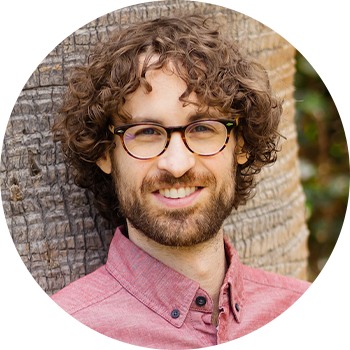
Jordan Sloshower, MD, MSc is a psychiatrist, researcher, and educator whose work focuses on therapeutic applications of psychedelic medicines, and in particular, how these novel treatments can be delivered in a manner that promotes holistic healing and social justice. He is a faculty member in the Yale Department of Psychiatry, where he served as an investigator and therapist in several clinical trials of psilocybin-assisted therapy. Jordan is a clinical investigator in MAPS’ Expanded Access Program for MDMA-assisted therapy of PTSD and a lead trainer with Usona Institute’s psilocybin facilitator training program. Reflecting his commitment to ethical stewardship of psychedelic medicines, Jordan was recently elected to the Board of Directors of the American Psychedelic Practitioners Association and serves as a member of Chacruna Institute’s Council for the Protection of Sacred Plants. His interdisciplinary perspective is informed by prior training in medical anthropology and global health, and deep interests in ceremonial uses of plant medicines, Buddhist philosophy, and integrative approaches to wellness.
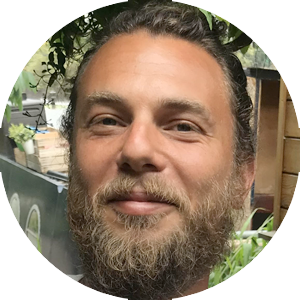
Leor Roseman is a Senior Lecturer and Psychedelic researcher at the University of Exeter. He has previously worked at the Centre for Psychedelic Research, Imperial College London, under the mentorship of Prof. Robin Carhart-Harris and Prof. David Nutt, supporting the foundational work of a remerging research field. His interdisciplinary research covers neuroscience, psychology, phenomenology, anthropology and conflict resolution, using various research methods such as fMRI, quantitative, qualitative, microphenomenology, ethnographic, and participatory research. Currently, Leor is investigating relational processes and group dynamics in psychedelic rituals. He is interested in how psychedelics enhance connectedness, group bonding (communitas), and sociality and can serve as a social cure. Furthermore, together with Palestinian and Israeli activists and researchers, he is developing a praxis of research & action which utilizes the potential of psychedelics for peacebuilding, liberation and justice. They hope to create a participatory approach that focuses on personal and societal healing and considers action and healing intertwined.

Anna (Anya) Ermakova has a motley background and broad research interests combining nature conservation, ethnobotany, neuroscience and psychiatry, interweaving and connecting these diverse paths through psychedelic science. Anya worked at the forefront of psychedelic research as a science officer at the Beckley Foundation, and has provided psychedelic welfare and harm reduction services with PsycareUK and Zendo. Deep love for nature and wildlife has motivated Anya to study biology at the University of Edinburgh, while a quest to understand altered states of consciousness has prompted her to specialise in neuroscience and later continued during her PhD in psychiatry at Cambridge, where she investigated the origins of psychosis. She then worked for the NHS, developing and trialing a new psychosocial intervention for psychosis. After a brief stint as a clinical trial manager, she had decided to pursue her passion for nature, by studying Conservation Science at Imperial College London, where she researched peyote ecology in Texas, USA. Anya is working as a research consultant in London, is a member of the Board of Directors of the Chacruna Institute for Psychedelic Plant Medicines, and member of Chacruna’s Council for the Protection of Sacred Plants. She is also board member of the Cactus Conservation Institute.
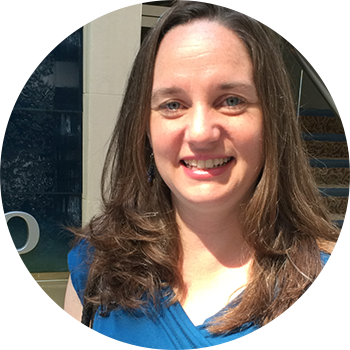
Dr. Erika Dyck is a Professor and a Canada Research Chair in the History of Health & Social Justice. She is the author of several books, including: Psychedelic Psychiatry: LSD from Clinic to Campus (Johns Hopkins, 2008; University of Manitoba Press, 2011); Facing Eugenics: Reproduction, Sterilization and the Politics of Choice (University of Toronto, 2013), which was shortlisted for the Governor General’s award for Canadian non-fiction; Managing Madness: the Weyburn Mental Hospital and the Transformation of Psychiatric Care in Canada (University of Manitoba Press, 2017), which won the Canadian Historical Association Prize for best book in Prairie History; and with Maureen Lux, Challenging Choices: Canada’s Population control in the 1970s (McGill-Queens University Press, 2020). She is also the co-editor of Psychedelic Prophets: The Letters of Aldous Huxley and Humphry Osmond (2018); and A Culture’s Catalyst: Historical Encounters with Peyote (2016). Erika is the co-editor of the Canadian Bulletin for Medical History/Bulletin canadien d’histoire de la medicine and the co-editor of a new book series on the global history of alcohol and drugs, called Intoxicating Histories. Erika is member of Chacruna’s Board of Directors and Associate Director of Chacruna in Canada.
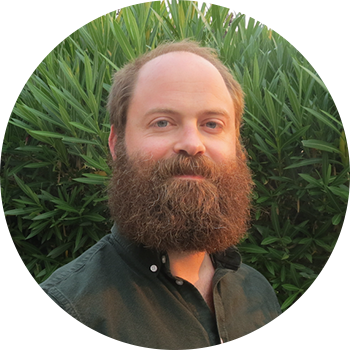
Dr. J. Christian Greer is a scholar of Religious Studies with a special focus on esotericism. In addition to earning a MDiv at Harvard Divinity School, he received his MA and PhD (cum laude) in Western esotericism from the History of Hermetic Philosophy department at the University of Amsterdam (UvA). His research addresses Popular Culture & Religion, Radical Politics & Religious Activism, Ecological Spiritualities, and Drugs & Religion. His forthcoming book, Angelheaded Hipsters: Psychedelic Militancy in Nineteen Eighties North America (Oxford University Press), analyzes the growth, diversification, and expansion of psychedelic culture within fanzine networks in the late Cold War era. In addition to occupying a postdoctoral position at the Center for the Study of World Religions at Harvard University, he teaches the “Visions of the Occult: Introduction to Esotericism” seminar each summer and winter at UvA.
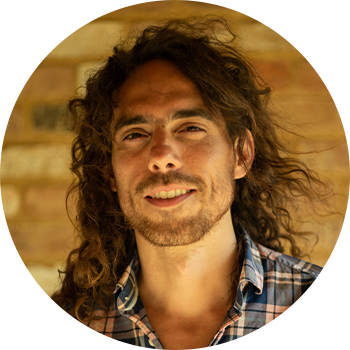
Christopher Timmermann (PhD) obtained a BSc in Psychology in Santiago, Chile and an MSc in Cognitive Neuroscience at the University of Bologna in Italy. He is based at Imperial College London at the Centre for Psychedelic Research, where he led neuroimaging research on the effects of the potent psychedelic DMT in the human brain and consciousness. His work focuses on the neuroscience, psychology, beliefs and ethics of the psychedelic experience. He is also the director for the Foundation for the Study of Human Consciousness (EcoH) in Chile, an interdisciplinary team which combines the study of non-ordinary states of consciousness with the epistemological tradition initiated by Chilean thinkers such as Francisco Varela and Humberto Maturana.
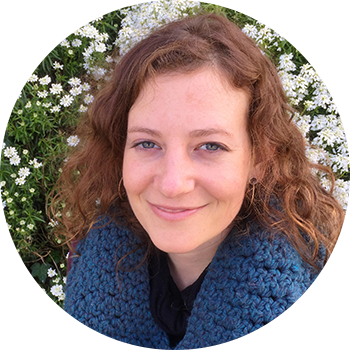
Laura Dev is Assistant Professor of Environmental Sciences and Society at the University of Wisconsin – Platteville. She is a political ecologist who uses interspecies lenses to understand how globalization and environmental change affect human-plant relationships and how interspecies relationships offer openings toward life. Her research has primarily been with Indigenous Peoples in the Amazon. Laura Dev received her PhD in Environmental Science, Policy, and Management from UC Berkeley.
Christian Greer
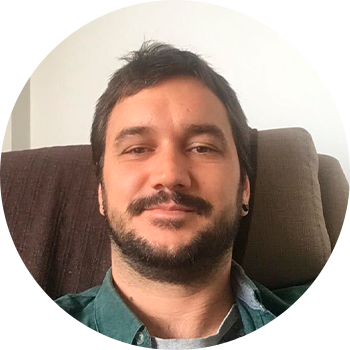
Bruno Ramos Gomes is a Brazilian psychologist, with a Master’s degree in Public Health at the School of Public Health-USP, and a PhD in Public Health at University of Campinas, Brazil. In his masters, he researched the use of ayahuasca in the recovery of homeless people and drug users. In his PhD, he did a 12 month qualitative follow-up of patients treating drug dependence and depression. He has been helping patients integrate ibogaine and ayahuasca in their therapeutic processes for the last 12 years. He is a member of the ICARO (Interdisciplinary Cooperation for Ayahuasca Research and Outreach)-UNICAMP and Chacruna’s Ayahuasca Community Committee.
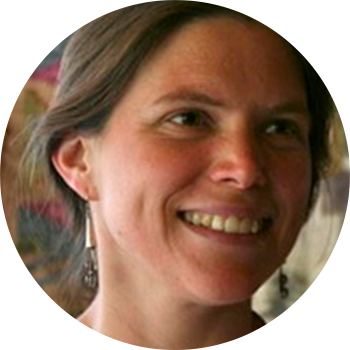
Anja Loizaga-Velder is a German-Mexican clinical psychologist and psychotherapist who has been collaborating with indigenous healers and investigating the therapeutic potential of the ritual use of psychedelic plants for over 25 years. She earned a Ph.D. degree in Medical Psychology from Heidelberg University in Germany with a doctoral dissertation on the topic: The therapeutic uses of ayahuasca in addiction treatment. She is a founding member and director of research and psychotherapy of the Nierika Institute for intercultural Medicine, in Mexico, a Mexican NGO dedicated to the investigation and preservation of indigenous traditions with sacred plant medicines and therapeutic applications of these medicines in the treatment of mental health challenges. Anja also is a professor and researcher in Humanities in Health at the Medical School at the National Autonomous University of Mexico, where she works towards implementing a controlled clinical trial for evaluating the therapeutic efficacy of ayahuasca for addiction treatment and a pilot study with psilocybin for the treatment of depression.
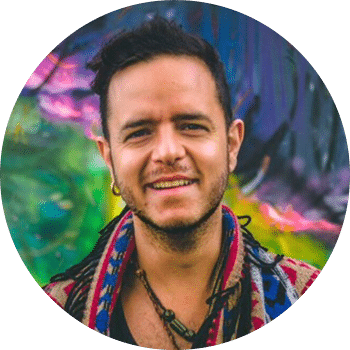
Gabriel Amezcua Noriega is a Mexican anthropologist with a master’s degree in intercultural conflict from the ASH Berlin. He is a specialist in social network mapping, social conflict, medical anthropology, mental health and harm reduction. His current focus is on understanding the social universe of people working with psychedelic substances through therapeutic, recreational, profit-making or drug policy advancement.
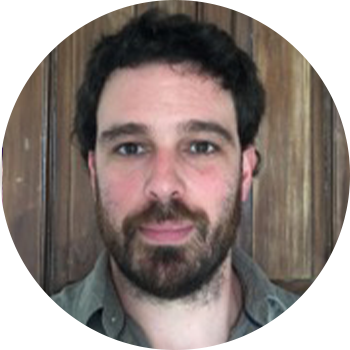
Juan Scuro is a Uruguayan anthropologist and professor at the Social Anthropology Department, Universidad de la República, in Uruguay. He is co-coordinator of Arche, an Interdisciplinary Group of Psychedelic Studies. Dr. Scuro has an M.A and a Ph.D in Social Anthropology from the Universidade Federal do Rio Grande do Sul, Brazil. He began doing ethnographic research in different ayahuasca settings in 2010, including Ayahuasca Religions, New Age centers and Peruvian Vegetalismo tradition. At present, he is particularly interested in the way that Psychedelic Renaissance is developing in Uruguay.
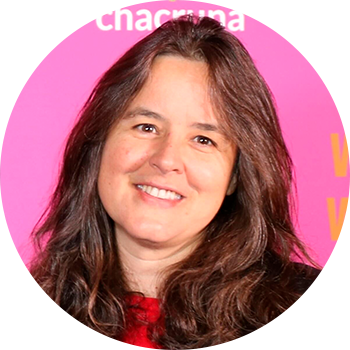
Dr. Beatriz Caiuby Labate (Bia Labate) is a queer Brazilian anthropologist based in San Francisco. She has a Ph.D. in social anthropology from the University of Campinas (UNICAMP), Brazil. Her main areas of interest are the study of plant medicines, drug policy, shamanism, ritual, religion, and social justice. She is Executive Director of the Chacruna Institute for Psychedelic Plant Medicines and serves as Public Education and Culture Specialist at the Multidisciplinary Association for Psychedelic Studies (MAPS). She is also Visiting Scholar at the Graduate Theological Union in Berkeley. Additionally, she is Advisor for the Veteran Mental Health Leadership Coalition and the Soltara Healing Center. Dr. Labate is a co-founder of the Interdisciplinary Group for Psychoactive Studies (NEIP) in Brazil and editor of its site. She is author, co-author, and co-editor of twenty-eight books, two special-edition journals, and several peer-reviewed articles (https://bialabate.net).
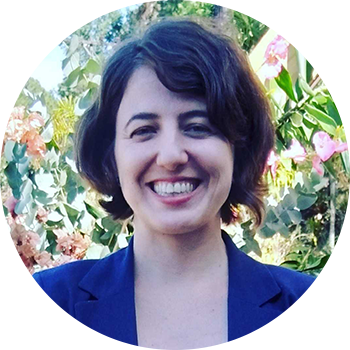
Lígia Duque Platero is Chacruna’s Education Program Associate. She is a queer, cisgender Brazilian woman. She has an interdisciplinary background in history, anthropology and Latin American studies. She holds a bachelor’s degree in history (2005) and a history teacher training qualification (2006) from the University of São Paulo (USP), in Brazil. She has a master’s degree in Latin American Studies from the National Autonomous University of Mexico (UNAM – 2012) in Mexico City, addressing public policies in relation to Indigenous peoples and Indigenous education in Brazil and Mexico from the 1940s-1970s. She has a doctorate in humanities, with an emphasis on cultural anthropology (2018), from the Federal University of Rio de Janeiro (UFRJ), in Brazil. Her PhD looked at the cultural transformations and exchanges amid the alliance between the Yawanawá Indigenous people and an urban church of Santo Daime. Her main research focus areas are: ayahuasca, Santo Daime, sacred plants, shamanic tourism, Yawanawá (Pano) people, Indigenous policies and human rights in Brazil and Mexico. She is a research associate at the Interdisciplinary Group for Psychoactive Studies (NEIP) and at the Laboratory for the History of Religious Experiences (UFRJ/IFCS) in Brazil.

Celia Morgan has been researching psychedelics since her undergraduate dissertation in 1999 looking at the effects of ketamine on her friends and peers in traveler scenes and squat parties in London. She then undertook a PhD at University College London in clinical psychology focusing on trying to understand the unique subjective experience of ketamine, as well as its allure for the increasing numbers of people at that time who were getting seduced into very frequent use. She was mentored by the brilliant Professor Val Curran where she learned not only psychopharmacology and psychology but also how to navigate the academic world as a woman. She used a variety of techniques from neuroimaging to qualitative research. She spent some time at Yale University, and University of Melbourne and returned for a tenured lectureship at University College London, then moving to the University of Exeter where she became a full professor in 2014 and now lives by the sea. Her lived experience of neurodiversity and life threatening illness have given insights into the liminal states of psychedelic experience and while she runs clinical trials of psychedelics, her passion is transdisciplinary working to both decolonise psychedelics, including the experience of non-medical drug users, as well as to work to delve deeper into the curious mystical effects of these pluripotent agents.
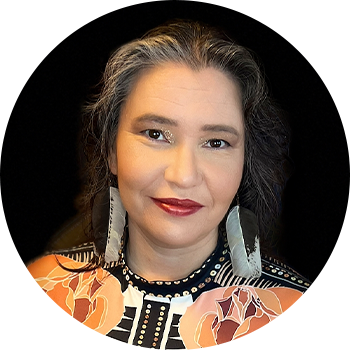
Christine Diindiisi McCleave, enrolled citizen of the Turtle Mountain Ojibwe Nation, is a doctoral student at the University of Alaska Fairbanks Indigenous Studies program with a focus on Indigenous Knowledge Systems of entheogenic plant medicines for healing. Her master’s thesis on Native American spirituality and Christianity and the spectrum of Native spiritual practices today, including Peyote religion, led her to become CEO of the National Native American Boarding School Healing Coalition where she helped introduce a bill for a national truth commission and worked with the United States Department of the Interior to investigate Indian Boarding Schools. Currently, she is facilitating Colorado’s Tribal Working Group under the Natural Medicine Health Act. In 2023, she was listed as one of 75 influential, innovative, and disruptive women in Psychedelics by DoubleBlind magazine. She is currently a member of the board for the Minnesota Council of Churches and the Vice President of the board for the Psychedelic Society of Minnesota.
Take a minute to browse our stock:
Did you enjoy reading this article?
Please support Chacruna's work by donating to us. We are an independent organization and we offer free education and advocacy for psychedelic plant medicines. We are a team of dedicated volunteers!
Can you help Chacruna advance cultural understanding around these substances?


